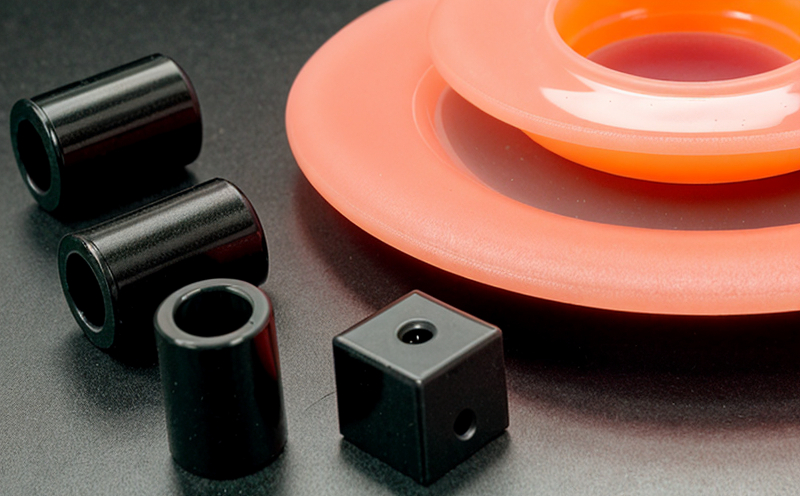NF EN 71-3 Heavy Metal Migration Testing of Plastic Leisure Products
The NF EN 71-3 standard is a crucial part of safety regulations for toys and similar products, particularly those intended for children. This test specifically addresses the potential migration of heavy metals from plastic materials used in these products to ensure they are safe for use.
Heavy metal migration testing under this standard aims to identify whether harmful levels of certain metals—such as lead, cadmium, chromium, mercury, and manganese—are present on or within a product. These elements can pose significant health risks if ingested by children who may put toys in their mouths during playtime.
The methodology involves submerging the test specimen in a simulated oral fluid (artificial saliva) for several hours before analyzing any released metals using analytical techniques like Inductively Coupled Plasma Mass Spectrometry (ICP-MS). Compliance with this standard ensures that products meet strict limits set forth by regulatory bodies to protect public health.
Understanding the nuances of NF EN 71-3 is essential for quality managers and compliance officers responsible for ensuring product safety. For R&D engineers, familiarity with these testing procedures helps in designing safer materials from the outset. Meanwhile, procurement personnel can ensure suppliers meet required standards by asking about their adherence to this standard.
Given its importance, it's worth noting that NF EN 71-3 is internationally recognized and has been adopted by various countries around the world. Its implementation reflects broader efforts towards enhancing child safety through stringent quality controls in the manufacturing process.
- Artificial Saliva: Used to simulate real-world conditions where oral exposure might occur.
- Sample Preparation: Ensures accurate measurement of metal content after dissolution.
- Analytical Techniques: ICP-MS provides precise quantification necessary for meeting regulatory requirements.
The process highlights the critical role that laboratories play in upholding these safety standards. By adhering to rigorous protocols and utilizing advanced instrumentation, testing facilities contribute significantly to maintaining high levels of public trust in consumer goods.
Scope and Methodology
The scope of NF EN 71-3 covers the determination of heavy metal migration from plastic materials used in toys and similar products intended for children. This includes identifying any potential risks associated with the presence of lead, cadmium, chromium, mercury, and manganese on or within these items.
The testing procedure involves several key steps:
- Sample Preparation: The sample to be tested must first undergo appropriate preparation methods such as cleaning and drying.
- Submersion in Simulated Oral Fluid: After preparation, the sample is placed into a container filled with artificial saliva and left for an extended period (typically 16 hours).
- Analytical Analysis: Once the exposure time has elapsed, the solution containing extracted metals is analyzed using ICP-MS to measure the levels of each specified metal.
The results are then compared against predefined thresholds outlined in the standard. Products failing to meet these criteria may require further investigation or modification before they can be deemed safe for children.
This detailed approach ensures consistency across different laboratories performing this test, thereby enhancing reliability and credibility of findings. It also helps manufacturers understand exactly where improvements might need to be made if their products fail certain tests.
Industry Applications
The application of NF EN 71-3 extends beyond just toy manufacturing; it encompasses any industry producing plastic leisure products designed for children. This includes but is not limited to:
- Motion control devices like remote controls and game consoles.
- Sports equipment such as balls, skates, and protective gear.
- Playsets and outdoor play structures.
In these sectors, ensuring compliance with NF EN 71-3 is not only a legal requirement but also an important step towards building brand reputation. Companies that adhere to these standards often find themselves competing more effectively in markets focused on safety and quality.
Furthermore, by investing time and resources into understanding the intricacies of this standard early on, businesses can proactively address any issues before they arise. This proactive approach not only minimizes risk but also demonstrates a commitment to customer satisfaction and regulatory compliance.
Quality and Reliability Assurance
To maintain the integrity of NF EN 71-3 testing, laboratories must adhere to stringent quality assurance practices. Regular calibration of equipment using known standards is vital to ensure accurate measurements.
- Calibration: Ensures that all analytical instruments used in testing are operating correctly and consistently.
- Training: Continuous training for personnel involved in conducting tests helps keep them up-to-date with the latest methodologies and technologies.
- Audits: Regular internal audits help identify areas needing improvement and maintain overall quality standards.
- Laboratory Accreditation: Participation in accreditation programs such as ISO/IEC 17025 ensures that laboratories meet internationally recognized criteria for competence and reliability.
By implementing these measures, laboratories can provide accurate and reliable results, fostering trust among clients and stakeholders. This commitment to excellence also enhances the reputation of those adhering to NF EN 71-3 standards across various industries.





